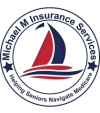If you’re turning 65 or helping a loved one navigate Medicare, you’ve likely come across something called Medicare Part C, also known as Medicare Advantage. At first glance, it can feel a little confusing—especially with all the different parts of Medicare to consider.
This blog will walk you through the basics of Medicare Part C in. Whether you’re exploring your options for the first time or simply trying to make sense of your choices, this guide is here to help.
What Is Medicare Part C (Medicare Advantage)?
Medicare Part C, or Medicare Advantage, is an alternative way to receive your Medicare benefits. These plans are offered by private insurance companies that are approved by Medicare.
When you choose a Medicare Advantage plan you will use it in lieu of your Original Medicare Card (Parts A and B). However, it still provides the same coverage as Original Medicare—and often adds more.
What Does Medicare Advantage Cover?
All Medicare Advantage plans must cover everything Original Medicare covers, which includes:
- Part A : Inpatient hospital care
- Part B : Outpatient care, doctor visits, preventive services
In addition, many Medicare Advantage plans also offer extra benefits, such as:
- Prescription drug coverage (Part D)
- Dental, vision, and hearing care
- Wellness programs or fitness memberships (like SilverSneakers)
- Transportation to medical appointments
Because these plans are offered by private insurers, the specific benefits and costs can vary depending on the plan and where you live.
Types of Medicare Advantage Plans
There are several types of Medicare Advantage plans, each with different rules for how you get care:
1. HMO (Health Maintenance Organization)
- Requires you to use doctors and hospitals in-network
- May require a referral to see a specialist
2. PPO (Preferred Provider Organization)
- Allows more flexibility to see out-of-network providers, usually at a higher cost
- No referrals needed for specialists
3. PFFS (Private Fee-for-Service)
- You can go to any Medicare-approved provider that accepts the plan’s payment terms
4. SNP (Special Needs Plans)
- Tailored for individuals with specific health conditions or financial needs
What Does Medicare Part C Cost?
Costs for Medicare Advantage plans vary based on the plan and location, but here are some general points to keep in mind:
- You still pay your Medicare Part B premium (standard is $185.00/month in 2025)
- Many plans have a $0 premium , but others may charge an additional monthly fee
- You may have copays or coinsurance for services
- Most plans include an annual out-of-pocket maximum , which Original Medicare does not offer
This limit can help protect you from very high medical costs during the year.
Pros and Cons of Medicare Advantage
Pros:
- All-in-one coverage (medical, hospital, often drugs)
- Added benefits not included in Original Medicare
- Annual limit on out-of-pocket spending
Cons:
- Must use plan networks (HMO/PPO)
- Plans may change benefits or provider networks annually
- May require referrals for specialist care
When Can You Enroll in a Medicare Advantage Plan?
You can enroll during:
- Your Initial Enrollment Period (IEP) : Begins 3 months before your 65th birthday and ends 3 months after
- The Annual Enrollment Period (AEP) : October 15 – December 7
- The Medicare Advantage Open Enrollment Period : January 1 – March 31 (only for people already in a Medicare Advantage plan)
- A Special Enrollment Period (SEP) : For certain life events (moving, losing coverage, etc.
Is Medicare Advantage Right for You?
Medicare Advantage can be a good option for people who:
- Want all their coverage bundled in one plan
- Prefer lower premiums
- Are comfortable with provider networks
- Value added benefits like dental, vision, and fitness perks
However, if you travel frequently, see many specialists, or want more provider flexibility, you might prefer Original Medicare with a Medigap
plan.
Final Thoughts: Making the Right Medicare Choice
Medicare Part C (Medicare Advantage) offers an alternative to Original
Medicare, with many plans offering additional benefits and protections. Like
all Medicare choices, it’s important to weigh the pros and cons based on
your personal health needs, financial goals, and lifestyle.
Taking the time to compare plans, review provider networks, and
understand coverage details will help you make the best decision for your
situation.
For more information, visit Medicare.gov, connect with your State Health Insurance Assistance Program (SHIP), or speak with a trusted Medicare advisor.
Can I see any Doctor with a Medicare Advantage Plan(Part C)?
As long as the doctor is in network for your plan. If the plan is an HMO you will pay the full cost and if a PPO you will pay a higher copay.
Are my medications covered?
Most Medicare Advantage Plans have a Part D Rx plan embedded so
yes, your meds can be covered.
Do I have to pay for copays?
Yes, Medicare Advantage Plans come with low or no premiums but there will be a copay for all services.
Mike Miligi- Owner
For over 10 years, Mike has been assisting Seniors and other Medicare-eligible individuals in understanding the ins and outs of Medicare and Medicare Health Insurance options, including Medicare Advantage Plans(Part C), Medicare Supplement Plans(Medigap), Prescription Drug Plans(PartD), and Dental and Vision programs.
Mike is Licensed in seven States and Certified with 11 Insurance Carriers. He has helped thousands of individuals decide on the best course of action for their particular Health Insurance needs. Because Mike is an Independent Medicare Health Insurance Broker, he works for the client, not the Insurance Carriers, and is able to provide his clients with accurate and unbiased Health Insurance options.
Mike recertifies with CMS(The Centers for Medicare and Medicaid Services) annually, regularly completes Continuing Education Courses required by individual State Insurance Departments, and keeps abreast of industry trends and standards to offer his clients the most up-to-date information.

